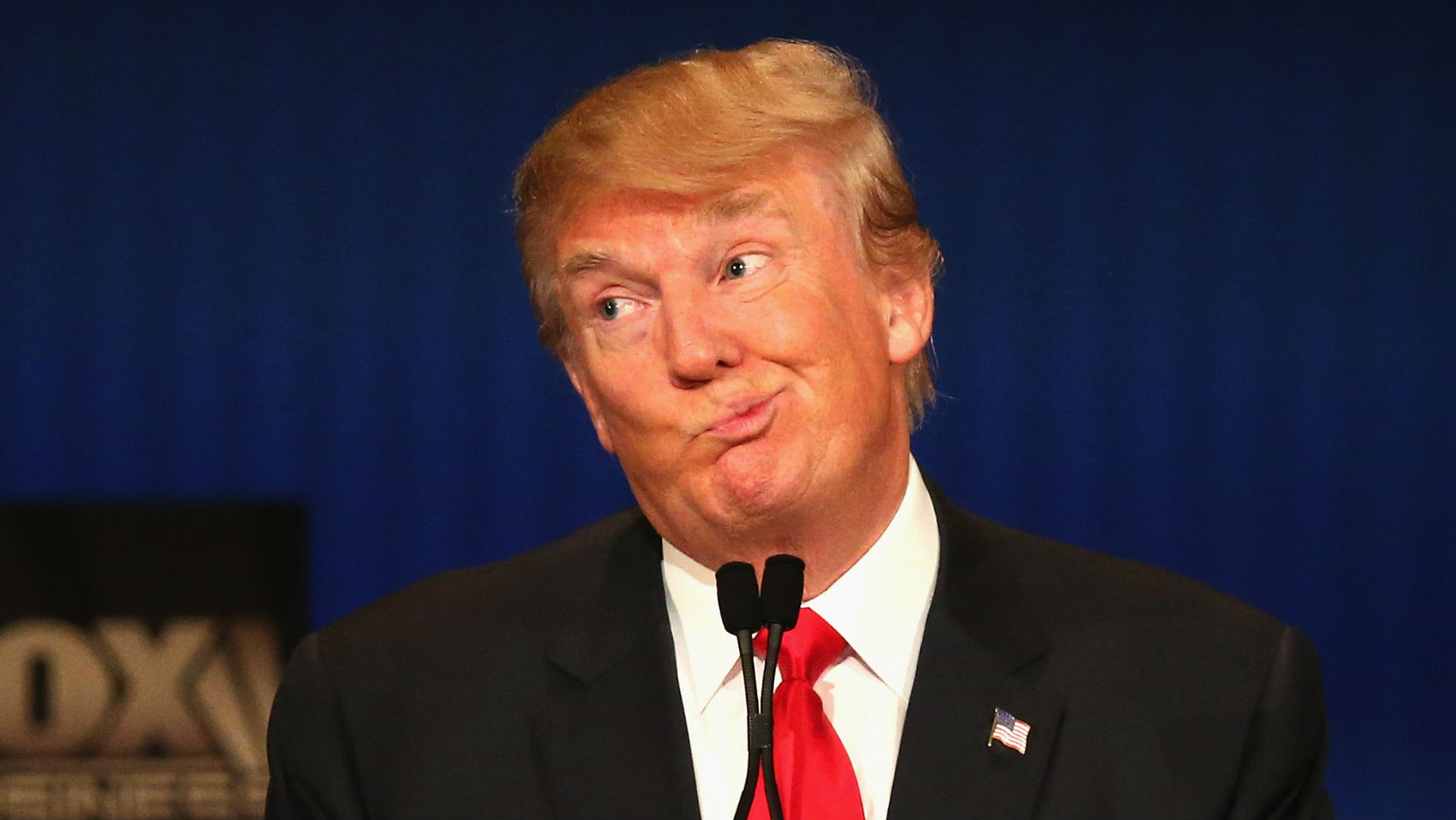Why is Trump in denial about coronavirus?
US president says he has a ‘hunch’ the death rate is lower than WHO estimate

A free daily email with the biggest news stories of the day – and the best features from TheWeek.com
You are now subscribed
Your newsletter sign-up was successful
Donald Trump has said he does not believe the World Health Organization’s (WHO) assessment of the global fatality rate from coronavirus.
The UN agency currently puts the death rate from coronavirus at 3.4%. By comparison, the death rate from seasonal influenza is typically estimated to be 0.1%.
–––––––––––––––––––––––––––––––For a round-up of the most important stories from around the world - and a concise, refreshing and balanced take on the week’s news agenda - try The Week magazine. Start your trial subscription today –––––––––––––––––––––––––––––––
The Week
Escape your echo chamber. Get the facts behind the news, plus analysis from multiple perspectives.

Sign up for The Week's Free Newsletters
From our morning news briefing to a weekly Good News Newsletter, get the best of The Week delivered directly to your inbox.
From our morning news briefing to a weekly Good News Newsletter, get the best of The Week delivered directly to your inbox.
So what did Trump say?
Speaking live on Fox News, the president said he did not believe the WHO’s health professionals’ calculations, because he had a “hunch” the death rate was lower.
“I think the 3.4% is really a false number,” he told conservative Fox News host Sean Hannity, in a phone interview broadcast live.
“Now, this is just my hunch, based on a lot of conversations with a lot of people that do this, because a lot of people will have this, and it’s very mild – they’ll get better very rapidly, they don’t even see a doctor, they don’t even call a doctor,” The Guardian reports.
A free daily email with the biggest news stories of the day – and the best features from TheWeek.com
“You never hear about those people, so you can’t put them down in the category of the overall population, in terms of this corona flu, and/or virus. So you just can’t do that.”
Trump then had his own guess at a likely death rate.
“You know, all of a sudden it seems like 3 or 4%, which is a very high number, as opposed to a fraction of 1%,” he said. “But again, they don’t know about the easy cases because the easy cases don’t go to the hospital. They don’t report to doctors or the hospital in many cases. So I think that that number is very high. I think the number, personally, I would say the number is way under 1%.”
WHO sources told the Guardian that the 3.4% was not the final mortality rate, but a calculation based on the number of cases and deaths to date.
“It’s not a mortality rate. But it is the math. The calculation on the given day,” they said.
The previous death rate was given at around 2% after the initial outbreak of cases in Wuhan, China.
Why is Trump in denial?
Like most news stories that are inconvenient for the president, Trump has chosen to brand the fatality rate of coronavirus as fake news.
The Trump administration is promoting the “narrative that Democrats are using the coronavirus to further their own political agenda by exaggerating its severity”, says the Guardian.
Peter Hegseth, a co-host of Fox & Friends Weekend, attacked Democrats’ criticism of the president, saying: “They’re rooting for the coronavirus to spread. They’re rooting for it to grow. They’re rooting for the problem to get worse.”
Fellow host Ainsley Earhardt said that Democrats “are probably jumping for joy” over the stock markets falling.
Fox’s Laura Ingraham said the media were using coronavirus “to smear the administration in a number of ways”.
MSNBC host Chris Hayes called out the right-wing media commentators’ comments: “Really fascinating to watch rightwing media wrestle with coronavirus. The reactionary instinct… is to fear-monger about diseased foreigners, but that might hurt Trump, so they’re trying to tamp down those fears or spin some anti-Trump conspiracy.”
Conservative commentator Rush Limbaugh, who was recently awarded the Presidential Medal of Freedom, said “the coronavirus is the common cold, folks” after saying the illness “is being weaponised as yet another element to bring down Donald Trump”.
Global coronavirus cases have exceeded 100,000 as of Friday morning, with more than 3,400 deaths. This included 233 cases and 14 deaths so far in the US.